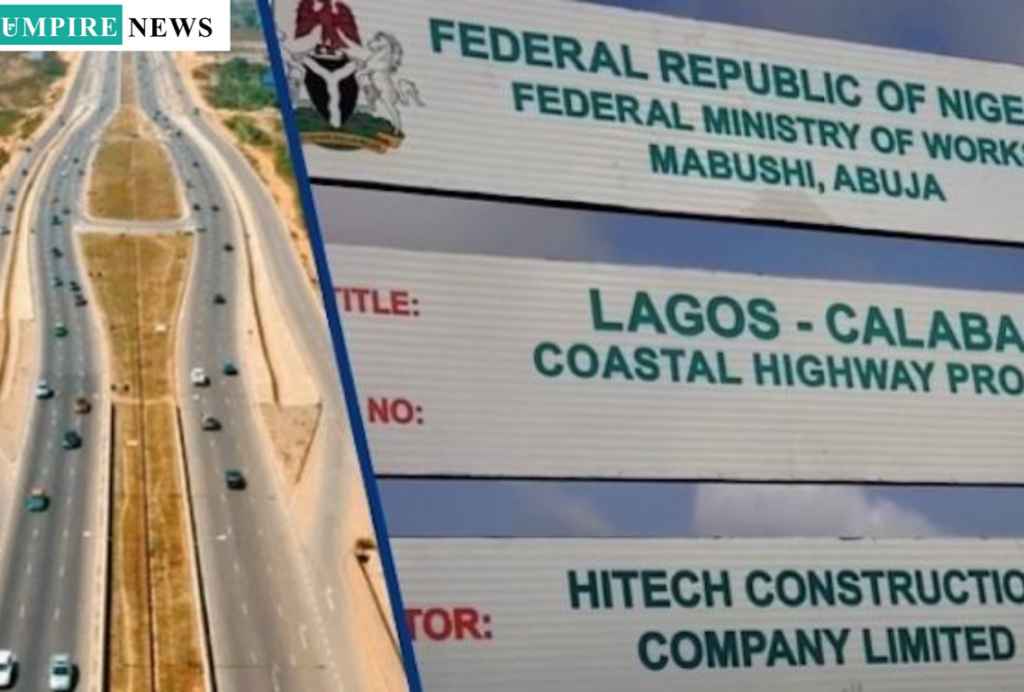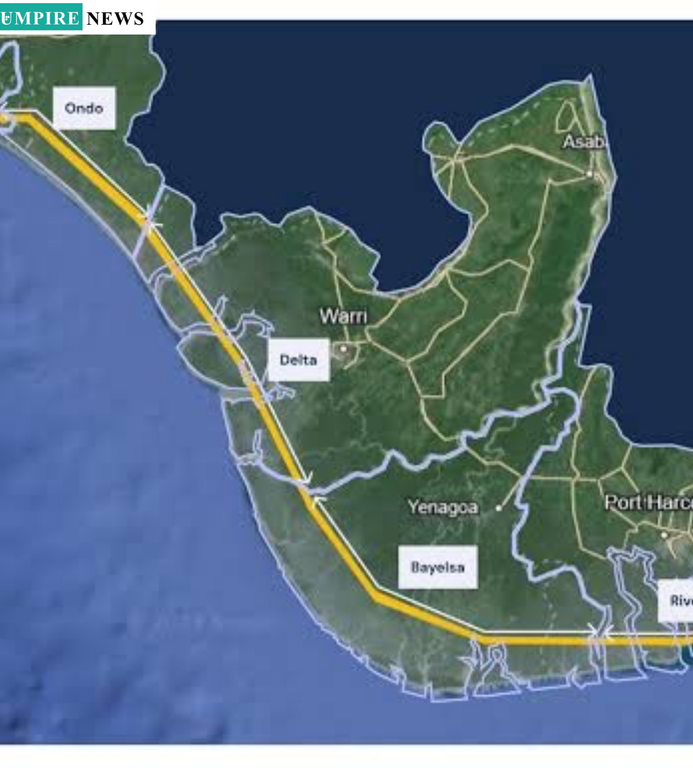The Minister of Works, David Umahi, has reassured the public of the government’s commitment to completing the 700-kilometer Lagos-Calabar coastal highway project within the stipulated timeline.
This assurance came during an inspection of a previously evacuated section of the highway, which had been refilled after being used as a dump site.
The highway is a critical infrastructure project, spanning multiple coastal states from Lagos to Cross River, with the aim of enhancing transportation and boosting economic activities in the region.
While inspecting the site, Umahi praised the construction company, Hitech, for its efficiency and the quality of work being carried out.
He expressed confidence that despite the challenges faced, the company would meet its target of completing one kilometer of concrete pavement per day.

This pace, he said, would ensure that the project’s overall timeline remains on track, and the highway will be completed as scheduled.
He emphasized that the settlers along the construction corridors, who have failed to comply with relocation directives, would soon be dislodged to allow for the continuation of work.
“I am very happy with the work, and people have been asking me that we say this 47 kilometre will be commissioned by May 29, and they are counting months for me, and they are counting months for Hitech. But I have no fear about what Hitech is doing. First, it is good quality work; the most difficult aspect of this is the settlement of the sand,” he explained.
The Lagos-Calabar coastal highway, once completed, will pass through the coastal states of Ogun, Ondo, Delta, Bayelsa, Rivers, and Akwa Ibom before terminating in Cross River.
This project is of strategic importance as it will connect the southern part of the country, fostering trade, tourism, and economic integration between the coastal states.
The federal controller of works in Lagos, Olukorede Kesha, provided further insight into some of the challenges that had slowed down progress on the highway.

According to Kesha, the discovery of refuse dumps along certain sections of the road had posed an unexpected obstacle. In some locations, the refuse was as deep as five to six meters, which required extensive excavation before construction could continue.
“In some places, we had as deep as five to six metres of refuse, and the place where we are standing now was just at the formation level, so we are still going to fill on top of this. So, it’s an additional cost because it was not really envisaged,” Kesha explained.
Despite these challenges, Kesha assured the minister that the delays caused by the refuse evacuation would not have a notable impact on the overall duration of the project.
The waste is being transported to more suitable sites, such as Epe and Ojota, to ensure that the construction can proceed without further hindrance.
The Lagos-Calabar coastal highway, estimated to cost N15 trillion, will be a game-changer for the country’s road infrastructure. Each kilometer of the road is expected to cost around N4 billion, reflecting the scale and complexity of the project.
With the federal government and the contractors working closely to overcome the challenges, the project is poised to deliver immense benefits, including improved transportation, economic growth, and regional connectivity for the southern part of Nigeria.
The road is expected to ease the movement of goods and people across the coastal region, reduce travel time, and open up new economic opportunities in trade, industry, and tourism.
Once completed, the highway will be one of Nigeria’s most substantial infrastructure achievements in recent years.
































